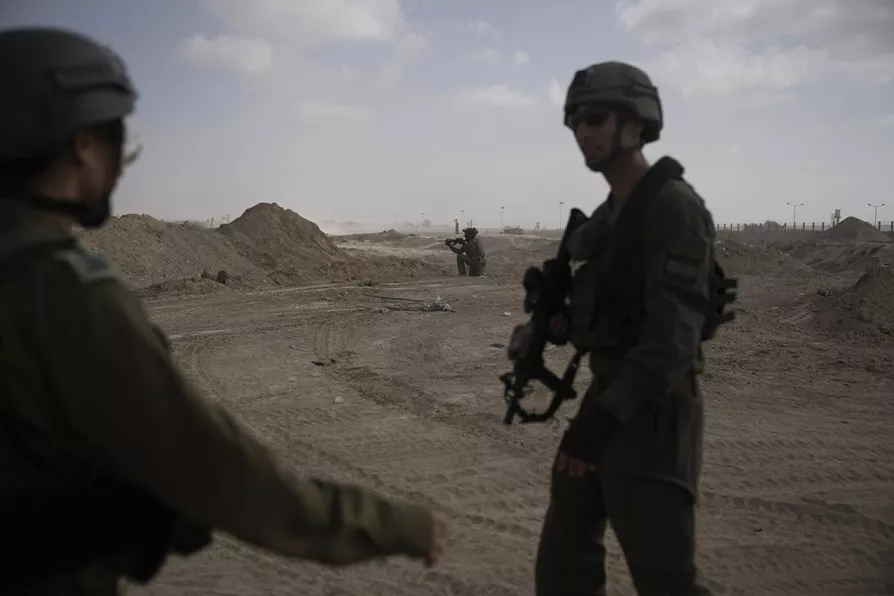Gaza ceasefire deal in peril as Israel refuses to uphold bargain to withdraw from strategic corridor

 Israeli soldiers take up positions next to the Philadelphi Corridor along the border with Egypt, in the Gaza Strip, September 13, 2024
Israeli soldiers take up positions next to the Philadelphi Corridor along the border with Egypt, in the Gaza Strip, September 13, 2024
ISRAEL placed the ceasefire deal with Hamas in jeopardy today by announcing that it will not withdraw from a strategic corridor in the Gaza Strip.
Israel’s refusal could spark a crisis with Hamas and key mediator Egypt at a sensitive moment for the fragile truce.
Hours earlier, Hamas released the remains of four hostages in exchange for more than 600 Palestinian prisoners, the last planned swap of the ceasefire’s first phase, which ends this weekend.
Similar stories













